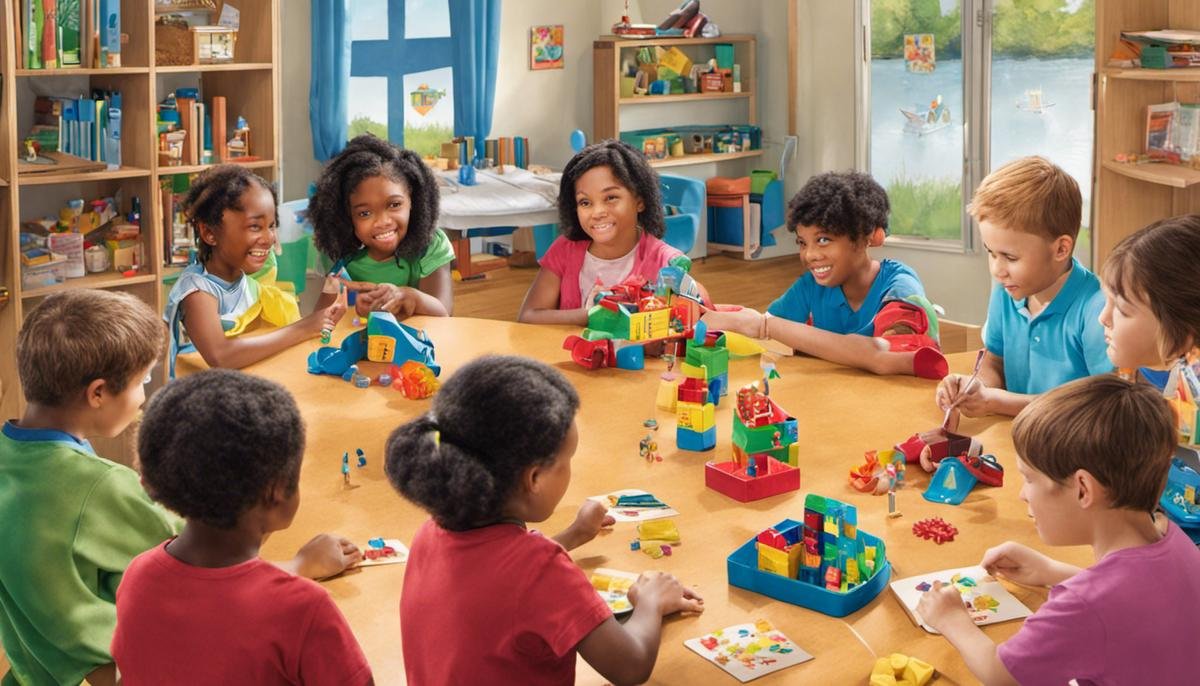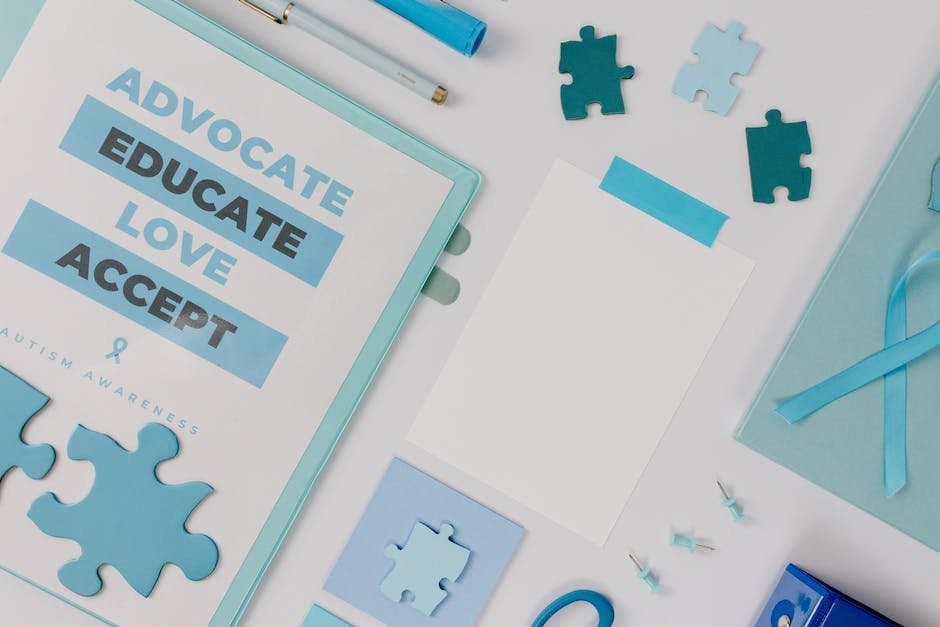
The intriguing complexity of autism, a neurological and developmental condition that emerges during early childhood, has led to numerous therapeutic interventions, research, and probing discussions. Autism, diagnosed through a sophisticated process involving behavioral screenings and comprehensive developmental evaluations, profoundly affects an individual’s ability to socialize and communicate. However, recent research reveals some children diagnosed with autism appear to ‘outgrow’ their diagnosis, challenging the ingrained perception of autism as a lifelong condition. This essay aims to explore this possibility and its subsequent implications, scrutinizing potential contributing factors, the impact on families, and the associated critiques.
Understanding Autism and Its Diagnosis
Understanding Autism: A Concise Guide for Parents
Hello, dear parents and guardians! In our journey as caretakers, we encounter diverse aspects of child development. One topic that often surfaces is autism. A term we have all heard, but what exactly does it mean? This article aims to demystify the concept of autism and foster understanding by supplying some straightforward facts about its diagnosis.
Autism, also known as Autism Spectrum Disorder (ASD), is a broad-term used to define a complex psychological condition characterized by challenges with communication, social skills, and sometimes repetitive or unique behaviors. It’s important to remember this represents a spectrum condition, implying differences in the severity and symptoms in children diagnosed with ASD. It’s this wide variance that gives autism its kaleidoscope-effect, with each child showing a different pattern of behaviors and abilities.
To diagnose autism, healthcare professionals look for certain signs and behaviors early in a child’s life. Typically, it can be reliably diagnosed as early as age 2, although it’s not uncommon for it to be identified by the time a child is 18 months old. The key here is early detection followed by immediate intervention.
The initial diagnosis is often a two-step process. The first step is a general developmental screening during the regular well-child doctor visits. During this check-up, the pediatrician may ask parents some questions or play with the child to see if he or she has basic skills such as talking, listening, and movement abilities. They also closely observe how the child learns, behaves, and interacts with others.
If there are signs or indicators of ASD, the pediatrician will proceed to the second step, a comprehensive evaluation. This assessment takes a deep dive into the child’s behavior and development. It often includes a team of specialists, which may include a psychologist, a neurologist, a psychiatrist, a speech therapist, or an occupational therapist. These evaluations often look for issues in communication skills, social interactions, and repetitive or restrictive patterns of behavior.
Remember, a diagnosis of autism, while it might seem overwhelming, is not an endpoint. It’s merely a starting point of a journey. There’s a vast array of resources available, ranging from therapy to educational plans, to help manage autism and aid in the child’s development. Understanding autism equips us, as parents and caregivers, with the tools we need to nurture our children’s growth and potential.
It is always key to recall that every child’s journey is unique, just like them. Early diagnosis and intervention can make a massive difference in helping children with autism thrive. So, dear readers, embrace the exploration of understanding autism. It’s not about finding a ‘cure’ but rather living a life full of understanding, acceptance and love. Every child brings a special kind of joy into this world. Shedding light on autism, acknowledging it, and understanding it, lets that joy shine even brighter!

The Possibility of Outgrowing Autism
The Question: Can One Outgrow Autism?
Venturing into an important area of autism discussion, we find ourselves mulling over one curious question: Can one truly outgrow a diagnosis of autism? This topic inevitably sparks much debate among experts, families, and individuals grappling with the condition.
Autism Spectrum Disorder, as we understand, is typically a lifelong neurological condition. Yet, there are intriguing cases coming to light where individuals, once diagnosed, seem to reduce their symptoms to a significant degree. It brings hope to many that ‘outgrowing’ autism may be a possibility.
Heartening Research: Shows Progress, Not Cure
Studies in recent years have observed cases where children who were diagnosed with autism early in life appear to ‘outgrow’ the disorder. They have moved seamlessly into mainstream classrooms, kept up with peers developmentally, and even lost their autism diagnosis.
A study by Dr. Deborah Fein and her team showed that approximately one in ten children may ‘bloom’ out of their autism diagnosis. However, this shouldn’t be confused for a ‘cure’. These conclusions are based on symptoms observed on the surface. It’s also important to remember that everyone’s journey with autism is unique.
Continuing Complexity: It’s More Than Meets The Eye
‘Optimal Outcome’ is a term that has been coined to describe these surprising cases. However, this doesn’t necessarily indicate a complete dissolution of symptoms. Though many individuals may not meet the diagnostic criteria for autism any longer, they often continue to grapple with issues related to attention, social communication, or anxiety.
Moreover, advancements are ongoing to understand if these individuals are truly ‘outgrowing’ autism or if they are learning to compensate or mask their challenges. Masking, in particular, could lead to mental health issues later down the line and should be recognized and addressed.
Helping Your Child: Nurturing Growth and Acceptance
What does this mean for those dealing with autism in day-to-day life? It underscores the importance of early intervention programs, holistic support, tailored education, and therapy. These factors can make a significant difference by providing life skills, enhancing social interactions, improving communication, and cultivating independence.
While this revelation has brought hope to many, always remember that every person with autism is unique. Some might exhibit marked improvements, while others find their own pace. After all, the goal is to help your child reach their full potential and equip them to lead a fulfilling, happy life.
Outgrowing autism? The jury is still out on that one. What we do know is this: handling an autism diagnosis takes patience, consistency, compassion, and an ocean of love. And as we journey through it together, it’s not about ‘fixing’ our child. It’s about understanding them, accepting them, and celebrating their unique perspective of the world.
So, let’s continue to be the village it takes to raise a child. Let’s provide them with all the tools, support, and love they need to navigate this diverse world. Let’s be their biggest cheerleaders, celebrating each small victory on this voyage of growth and self-discovery. After all, isn’t that what parenting is really all about? Let’s strive to build a world more understanding and accepting, whether they outgrow autism or grow with it.

Implication of ‘Outgrowing’ Autism Diagnosis on Families
The Impact of ‘Outgrowing’ an Autism Diagnosis on the Family
Every family encounters unique challenges and joyous moments that pave the way for their collective journey forward. A family tailored around individuals diagnosed with autism spectrum disorder (ASD) typically navigates a different set of trials and triumphs. Now, let’s consider the circumstances where a child who was initially diagnosed with autism eventually outgrows their diagnosis. This can unravel a spectrum of experiences for everyone involved.
Autism is a complex neurodevelopmental disorder, and when a child is said to ‘outgrow’ it, the term calls for our understanding. It might not necessarily mean that the autism has ‘vanished’ or that the individual is ‘cured’. Instead, it is seen that the child’s behavioral and cognitive development has advanced to a point where the symptoms no longer reach the thresholds in the autism diagnosis criteria. They may still exhibit unique behavioral and social traits, and that is perfectly okay.
Being informed about your child’s progress and not fitting into an ASD diagnosis anymore can usher in a flood of mixed emotions for families. The unwarranted but common feelings of relief can be overwhelming — it’s a natural response to anticipate a presumed path of lesser challenges for their child. Additionally, the pride in their child’s growth and progress, the gratification that their efforts and resources invested in interventions made a palpable difference, can bring immense joy.
On the flip side, there can be disconcerting feelings too. Parents could possibly worry about social stigma, wondering if it’s the right thing to divulge that their child once had a diagnosis of autism. Before sharing, remember, it is the child’s story to tell. It’s essential to respect their autonomy and the timing to reveal their diagnosis and possibly outgrowing it.
Letting go of systems and supports that were once instrumental in shaping the child and the family’s lives can feel like unchartered territory. They may need to redefine their once familiar roles, routines and daily structure. It is crucial during these adaption stages to communicate openly and regularly among family members, and if required, involve a professional counselor or therapist.
While outgrowing a diagnosis may signal progress, it doesn’t render the history of support and therapy moot. Encouragingly, the life skills and strengths gained through their journey until this point will continue to serve them, frame their unique personality, and equip them for their path ahead.
Outgrowing an autism diagnosis may impact the wider family tangentially as well. Grandparents, friends, close relatives — their understanding, acceptance, and support played a key role throughout the journey and can continue to be paramount. Just as they were part of the process when the diagnosis was first made, involving them now can aid the transition further.
Lastly, the community of autism, the camaraderie among families on a similar path, holds a profound space for many. It’s okay to still feel connected to this understanding community as it has been part of your tapestry of experiences, irrespective of where the diagnosis now stands.
In essence, as we gain further insights into the labyrinth of autism and its different facets, comprehension and acceptance of this complex journey continue to be paramount. As no two journeys are the same, each family grows through its unique set of experiences, evolves as it navigates through the specific challenges and victories, and in the process, builds a world that thrives on understanding, acceptance, and resounding love. Not forgetting, they have family, friends, a community, and a trove of resources to help along the way. Let’s continue to foster this ebullient spirit!

Potential Risks and Critiques of the ‘Outgrowing’ Concept
Delving deeper into the potential risks and critiques associated with the idea of ‘outgrowing autism’, there seems to be two primary concerns.
Firstly, it’s essential to highlight that every child with autism is unique and diverse, and this concept may inadvertently create unrealistic expectations or pressure. While some children might show significant development due to early intervention, therapy, and support, it doesn’t imply that every child will follow the same trajectory.
This concept could perpetuate the misleading perception that autism can be ‘cured’, rather than acknowledged as a lifetime condition that can be managed effectively. The word ‘outgrow’ might insinuate that autism is a phase or something to overcome, rather than a significant part of someone’s identity, potentially leading to devaluation of neurodiverse individuals.
The second concern lies around the standardization of what ‘outgrowing autism’ looks like. Often, it’s based on the child’s ability to function in a neurotypical setting, which can undermine the challenges an individual with autism may still face. Even if they no longer meet the diagnostic criteria, they may still struggle with sensory sensitivities, social navigation, or heightened anxiety levels that can greatly impact their daily life. It could fall into the trap of comparing their progress to neurotypical children, rather than celebrating their individual journey.
In the same breath, the removal of an ASD diagnosis could result in the cessation of essential therapies, educational, and financial supports that might negatively impact their progress. Given how critical these supports are for many families, the sudden withdrawal of resources might be daunting and create further anxiety.
Further, the concept of ‘outgrowing autism’ brings about an ethical question of when and if to disclose a previous ASD diagnosis in new social or academic circles. The fear of stigmatization might hold parents back from sharing valuable developmental history that could assist educators or therapists in providing optimal support.
Lastly, let’s not forget the confusion and upheaval experienced by siblings who have often taken on a supportive or somewhat protective role. The dynamic shift in their relationship can lead to feelings of bewilderment which must be handled with sensitivity and open communication.
While the concept of ‘outgrowing autism’ may bring hope to some families, it’s crucial to focus our efforts primarily on fostering acceptance and understanding of autism.
Every family’s experience with autism is unique, with its joys, its struggles, and above all, its love. Sharing and connecting with other families on similar journeys can truly make the difference in navigating the complexities, celebrating the accomplishments, and finding solace in the shared understanding.
Even if the concept of outgrowing autism might seem alluring, it’s the growth of love, acceptance, and in-depth understanding of autism that can truly make this world a place where everyone feels at home.

The notion of ‘outgrowing’ autism, while intriguing, presents complex implications that must be navigated carefully. Through research into the disorders’ nature and its wide spectrum, it becomes clear that outgrowing autism can sometimes mean evolved coping mechanisms rather than complete cessation of symptoms. While some may interpret this as significant progress, others argue that it fosters unrealistic expectations and neglects the persisting struggles faced by those on the spectrum. It behooves us to maintain balanced optimism with fundamentally understanding the condition in all its complexity. Only thus can we build a more acceptant and supportive society for everyone grappling with autism, whether they ‘outgrow’ it or not.





